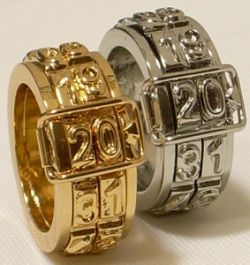ChessHeads is an attempt to cross chess with a collectible card game. There are 121 different cards that are randomly inserted into packs, although a complete set of all 121 cards can also be purchased for $99 at the time of this writing.
ChessHeads first came out around 2004-2005, and unfortunately there just aren’t many reviews out there about how well it actually plays. David Weinstock posted an overview of the game on BoardGameGeek.com back in April 2005 that noted,
So, what’s new with ChessHeads? Two big things, and one of them will be more important to you than the other. Which one will vary by reader. One is a meta-game issue: ChessHeads is a collectible game, and the cards in each box are random. There are no rarity levels; each card is as likely to appear as the next. The other is an in-game mechanic: card effects have to be paid for with “Entigy” (which is just “energy” with some game-world flavor). The usual way to gain Entigy is by capturing pieces.
The addition of Entigy means a game of ChessHeads often comes out of the gate very much like orthochess (that is, “regular” Western chess) as the players must make some captures or play some resource cards before they can start throwing around the board-shattering effects. It is not enough simply to have the perfect card in your hand, you also have to pay for it when you play it.
I’d be interested in hearing from anyone who has actually played ChessHeads or if anyone knows of any formal reviews of the game.


